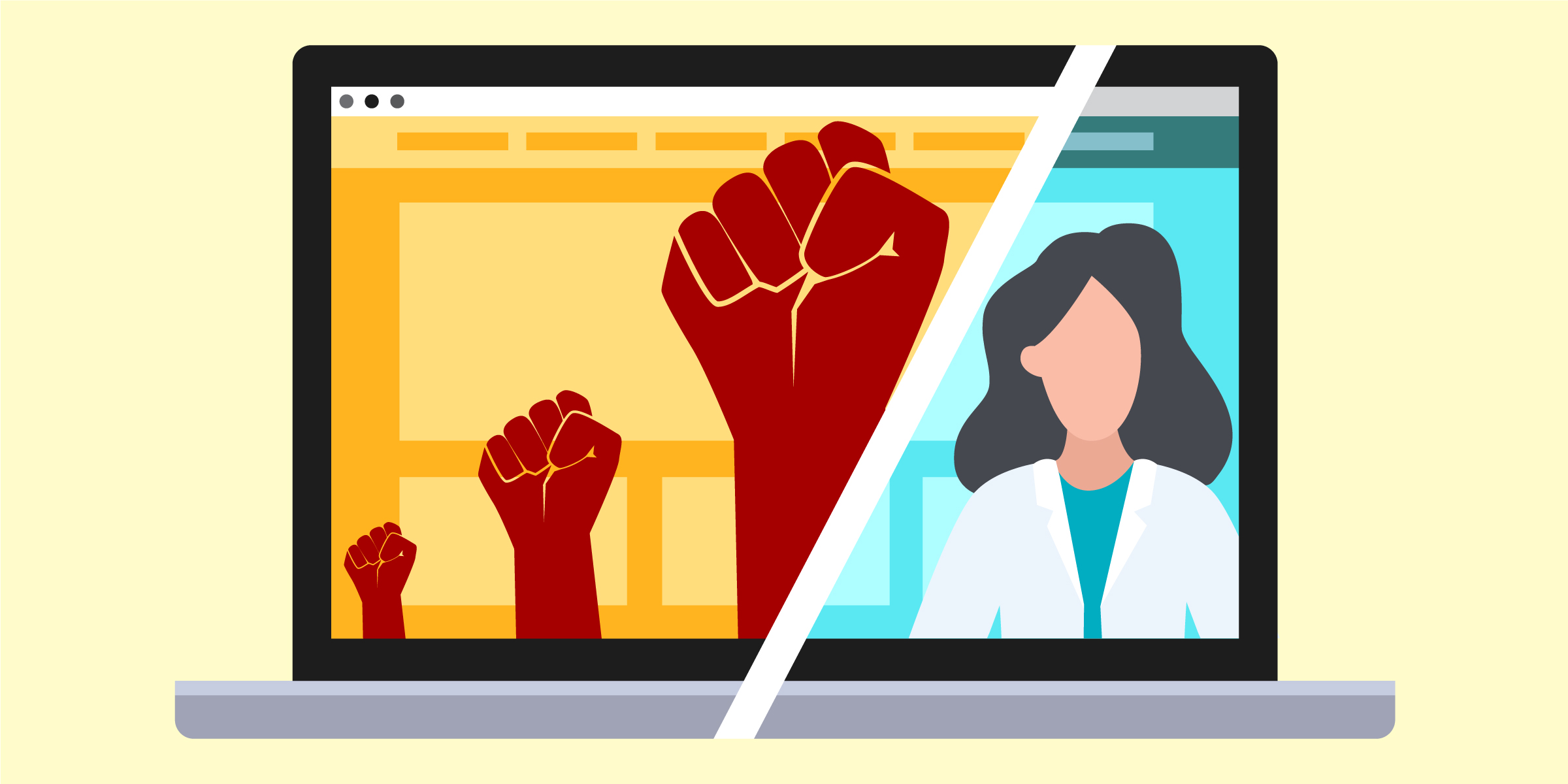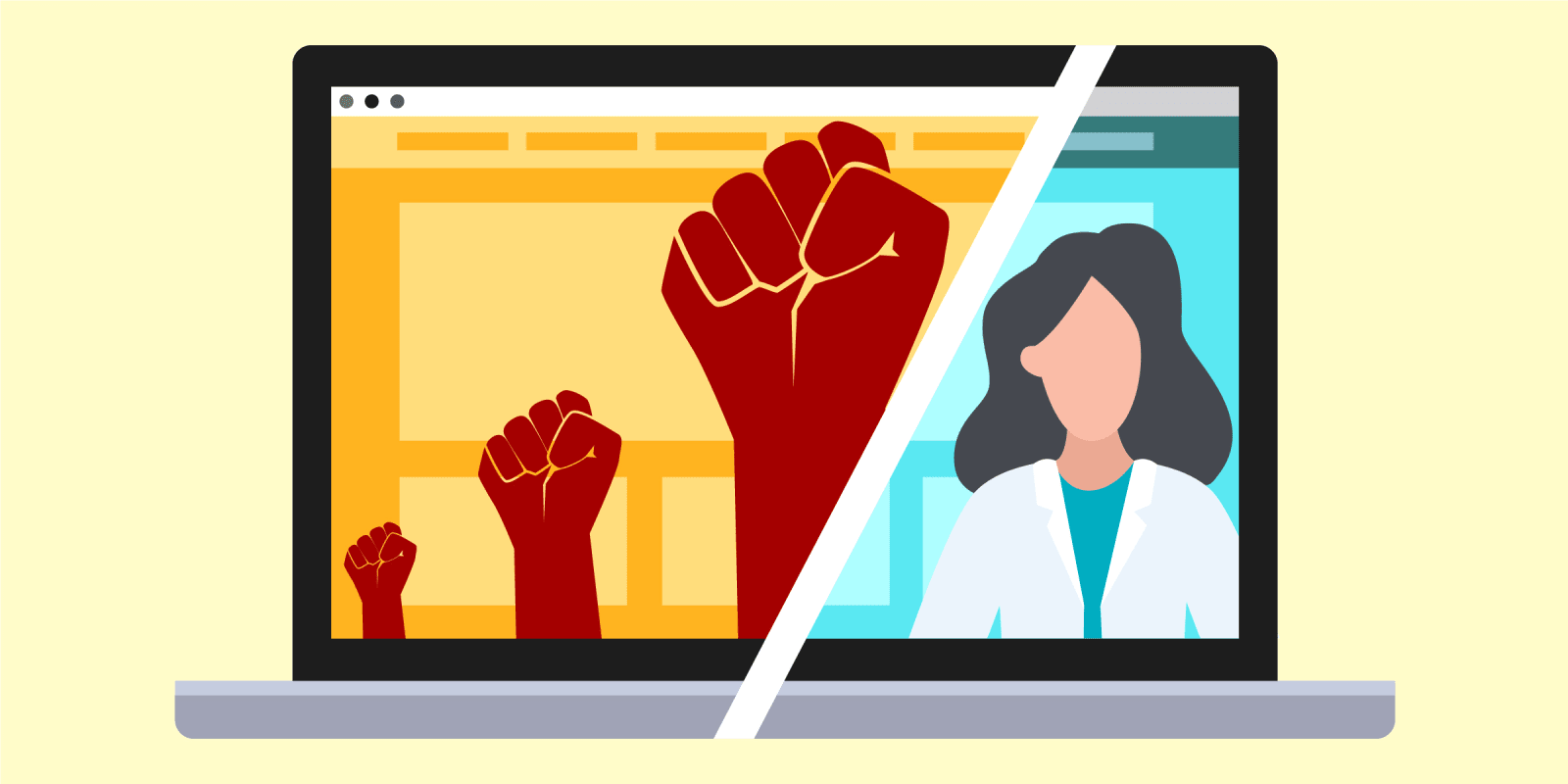
As I logged in for the American Society for Clinical Oncology’s (ASCO) 2020 conference’s virtual platform, I found it hard to concentrate. My social media feed was full of updates on protests, riots, and looting across the nation. While we all were extremely sad that this year’s ASCO had been moved to a virtual setting, in retrospect a virtual platform was the safest way to have an international medical conference at this moment in time. However, with the current state of events, a national pandemic, riots and protests for the loss of Black lives, marches to advocate for the end to structural racism, and an uncertainty fueled by two public health crises colliding, it was hard to focus on continuing education provided by ASCO’s virtual platform.
Attending a virtual conference brings on its own sets of challenges even when not in the middle of a pandemic and national unrest. For example, while listening to updates in treatments of hepatocellular carcinoma, I was also listening to my young twins read a book to me. Then while trying to listen to a plenary session, I was preparing food for my 6-year-old and taking a few moments to acknowledge and watch the historic SpaceX launch. The challenge of balancing home responsibilities while also trying to listen to updates in cancer was a different experience to previous ASCO conferences where I was able to give the speaker my undivided attention. The flexibility of being able to watch sessions at a later time at my convenience did allow me to watch content when I had some time. But the buzz of McCormick place, and the networking and mentorship opportunities in the Women’s Networking Center, as well as the palpable excitement that is felt when practice-changing information is shared during a plenary session, were all missed.
However, there were some exciting new experiences and opportunities available in the virtual space. The ability to engage on an Instagram live with leaders in GI Oncology who shared their biggest take home points from this years ASCO was a first for me, and provided a way to discuss with leaders in real time. The opportunity for those participating to comment live and have those comments brought in to the discussion made for a robust and very interesting conversation, and allowed for real time contributions from giants in the field. ASCO's virtual platform also made the conference more accessible to many across the world who would not have been able to attend for a variety of reasons such as cost, travel, or ability to take time away from work. And the ease with which one could log on and consume content was a definite plus.
Yet, my inability to truly engage and provide my undivided attention to continuing education was obvious as my mind was distracted by both current events, and also my caregiving responsibilities in the home. My children did not understand that I was attending a conference on a weekend. It was difficult to get excited about groundbreaking studies in cancer wellness when footage of tear gas and looting was being livestreamed on the screen next to me. My brain didn’t understand why I was trying to listen to information on cancer when community members were being pepper sprayed and hit with rubber bullets. My enthusiasm for engaging and sharing exciting oncology content on social media was tempered by the ongoing unrest across our nation. I was not as engaged with the content this year, but that was not because the content was not exciting for our cancer patients. My normal enthusiasm to engage on social media and tweet out updates was drowned out by my intense awareness of the civil unrest across our nation, and my desire to do something to make a difference in that moment.
Attending ASCO virtually was a different experience, especially in the landscape of the national turmoil unfolding. There is definitely a place for virtual learning as we move forward and eventually emerge from this pandemic, and I hope ASCO and other organizations continue to incorporate some aspects of virtual sessions and increased accessibility into programming moving forward. For these types of modalities to become a part of our education and our career development, virtual conference organizers must be innovative and find new and unique ways to keep attendees engaged, and hold their attention. The possibility to become distracted is much higher when watching from the comfort of one’s own home, and thus the onus is on the conference organizer to find ways to capture and keep attendees' attention. Regardless, nothing can compare to the hugs amongst colleagues, the catching up over coffee, and the excitement that comes from joining with innovators, scientists and physicians from around the world to focus for a few days on how we can continue to improve cancer care for our patients.
Shikha Jain, MD , FACP is an assistant professor of medicine in the Division of Hematology and Oncology and the physician director of social media and communication at the Rush University Cancer Center. She was named one of Modern Healthcare's Top 25 Emerging Leaders in 2019 and is a Public Voices fellow in the OpEd project and is a co-founder and chief operating officer of the group IMPACT. You can follow her on social media @ShikhaJainMD.
Illustration Collage by April Brust / Getty Images






